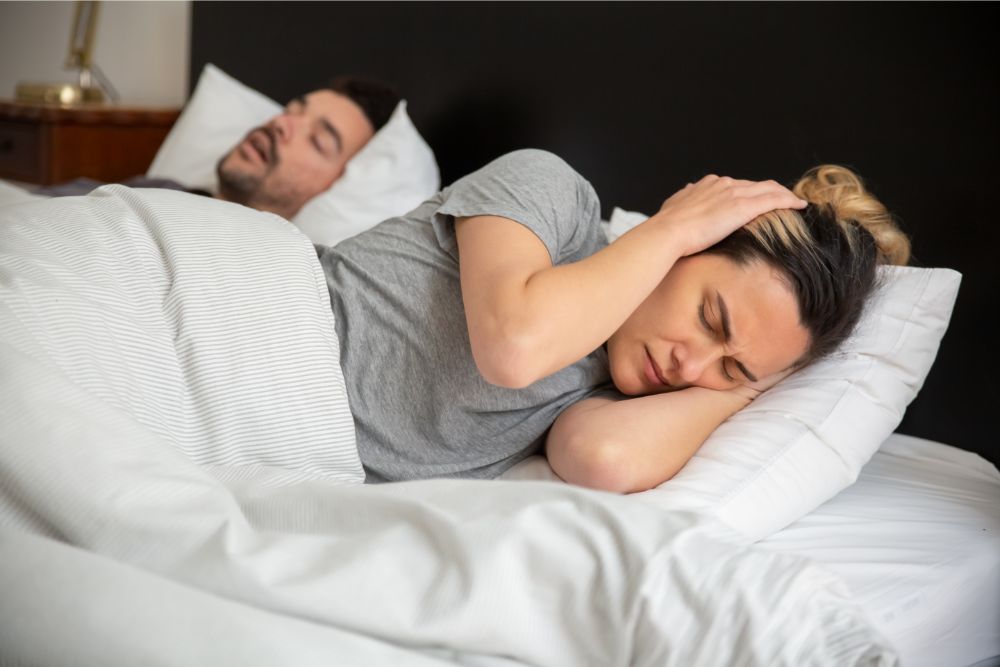About 80 million Americans snore and frequent and heavy snoring is the most common symptom of a serious disorder, sleep apnea, which is a frequent pause in breathing (an apnea) while sleeping. This has major health consequences and 22 million suffer from it, especially middle-aged men who are obese, though it can afflict even children. Fortunately, Wilshire Smile Studio is a specialist in how to treat Obstructive Sleep Apnea (OSA, which is by far the most common type).
Snoring is More Common than you Think
Snoring is often the result of someone lying on his back and when the mouth muscles relax, the tongue, the uvula (the tissue hanging over the throat), swollen tonsils, or other tissues fall back and block the airway. Any of these interferences can cause the vibrations that create the snoring sound, while also depriving the body of adequate oxygen. According to WebMD, snoring is also more likely if the individual drank alcohol or took muscle relaxers or sedatives within an hour of going to bed. If none of these issues seem to apply, it recommends a CT scan to see what might be causing the airway blockage.
The lack of oxygen prompts the brain to signal the body to wake up just enough to breathe deeply, which disrupts the restorative process of sleeping. Few of those who experience this are even aware of what has happened, which can occur up to 100 times a night.
Sleep Apnea can Affect the Risk of Other Health Problems
If snoring disturbs a partner, the remedy can simply be to sleep on the side. But if the partner is a deep sleeper or snorer herself or himself, they may not even know how often snoring occurs. If it is occasional, there is no health hazard, but chronic snoring, especially when it is heavy, is a common sign that the individual may have sleep apnea, which significantly raises the risk for high blood pressure, cardiovascular disease, diabetes, erectile dysfunction, and Alzheimer’s. The constant interruptions of sleep also result in extreme tiredness during the day, which can be hazardous when driving.
Other symptoms of sleep apnea can be irritability, anxiety, or depression not brought on by life’s circumstances, memory loss, frequent acid reflux, reduced reaction time, morning migraines, and dry mouth (due to breathing through the mouth all night, which causes a lack of saliva that would otherwise wash away periodontal bacteria).
Because dentists are specialists in the health of the mouth, some of them are qualified to treat sleep apnea by creating an FDA-approved personalized oral appliance that is worn during sleep to keep the airway open and even adjust the jaw, if that is part of the cause of the apneas. If you or a partner may be experiencing sleep apneas, call Wilshire Smile Studio today for an exam and discussion about whether treatment is recommended.

